Where
Storey Hall (Building 16), RMIT University
342 Swanston Street
Melbourne, Victoria, Australia
Speakers
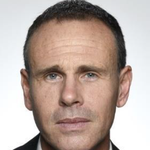
Dr. David Dutton
Assistant Secretary for Climate and Environmental Diplomacy at DFAT
David Dutton commenced as Assistant Secretary for Climate and Environmental Diplomacy in August 2023. He joined Australia’s Department of Foreign Affairs and Trade in 1999 and served most recently as Deputy Head of Mission in Brussels with accreditation to the EU and NATO.
He was an Assistant Secretary in the Southeast Asia Division 2016-19 and Deputy Head of Mission in Manila from 2013 to 2016. Previously, he served as Minister-Counsellor Political in Washington from 2010 to 2013 and in Australia’s Mission to the UN in New York from 2002 to 2005. In Canberra he held positions with responsibility for international security, environment, development and trade.
Dr. Dutton holds a PhD in history from the University of Melbourne. He is married to Megan Grant and they have two sons.

Abby
Australian Signals Directorate (ASD)
The Australian Signals Directorate (ASD) is a vital member of Australia’s national security community, working across the full spectrum of operations required of contemporary signals intelligence and security agencies. This includes intelligence, cyber security and offensive cyber operations in support of the Australian Government and Australian Defence Force. ASD’s purpose is to defend Australia from global threats and help advance Australia’s national interests. We do this by mastering technology to inform, through the covert acquisition of foreign information not publicly available (signals intelligence); protect, by comprehensively understanding the cyber threat, providing proactive advice and assistance to improve the management of cyber risk by government, business and the community; and disrupt, by applying our offensive cyber capabilities offshore, to support military operations, counter-terrorism, counter cyber espionage and serious cyber-enabled crime.
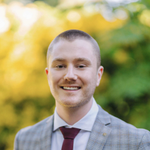
Sam Bissett
Investment Advisor at the Australian Trade and Investment Commission (Austrade)
Sam is an Investment Advisor at Austrade, where he supports productive foreign direct investment into Australia in the health and renewable energy sectors. He landed this role after completing the 2022 Austrade Graduate Program, gaining experience across a variety of areas in trade and investment from agribusiness to international education.
Sam is also the CEO of the Australia Latam Emerging Leaders Dialogue, a youth-led organisation that seeks to strengthen ties between Australia and Latin America. Previously, he worked as Director of Fundraising at Oaktree and Member Services Coordinator at the Australia Arab Chamber of Commerce.
Sam holds Bachelor of Global Studies and Diploma of Languages from Monash University, where he served as the Vice President of Oxfam at Monash and was the recipient of several scholarships including the Walter Mangold Trust. Outside of 9-5 work, Sam juggles a passion for singing with keeping up his German and Spanish and running walking tours of Melbourne on the weekends.
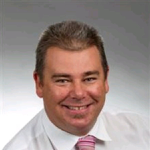
Steven Briggs
National Manager, Defence Work Experience Program at the Department of Defence
Steven Briggs is the National Manager for the Defence Work Experience Program at the Department of Defence. Steven is a generalist human resource professional with a range of management experience, covering all facets of the discipline. He possess a range of extensive experience in the development and implementation of HR strategies and programs, including workforce planning, leadership development, talent management, graduate development, attraction & retention and performance management processes.
With a passion for fostering the next generation's interest in defence, he plays a crucial role in providing invaluable opportunities for students to explore and engage with the defence sector.
Steven possesses a Masters of Human Resources Management, a Graduate Certificate of Management, and Diploma of Government – HR from the University of Canberra.
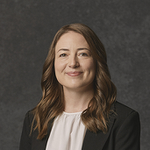
Laura Burke
Senior Regional Manager – Southeast Asia at Global Victoria
Laura Burke is the Senior Regional Manager – Southeast Asia at Global Victoria. She is an experienced strategic adviser, lawyer and manager that has worked across the government, corporate and not-for-profit sectors. Laura has provided strategic and policy development advice in Australia and Asia across a range of areas, including international trade, emergency management, human rights, anti-corruption, disability and social inclusion, preventing violent extremism and child marriage. She has also volunteered in the Australian Red Cross’ International Humanitarian Law and Emergency Services teams and sat on the Law Institute of Victoria’s Human Rights Committee. Laura has previously worked at Emergency Management Victoria, the Federation of Community Legal Centres, the Independent Broad-based Anti-Corruption Commission (IBAC) and the Australia-Indonesia Partnership for Justice in Jakarta. Before taking a two-year sabbatical to travel around the world, she was a Senior Associate at top-tier law firm Clayton Utz.
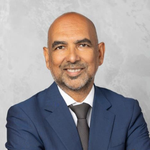
Mohammad Chowdhury
Founder and CEO of Long Street Advisors
Mohammad Chowdhury is the Founder and CEO of Long Street Advisors, supporting government, technology, telecoms and investor clients in enabling meaningful digitisation.
Mohammad has a global reputation having shaped significant digital and connectivity industry reforms across more than 80 countries. Mohammad tries to understand how connected technologies such as 5G, IoT and big data impact change in economies, communities, industries, how they affect growth and competitiveness and how to address wicked problems in digital adoption and inclusion in communities, industries and regions. In Australia, he has worked extensively with Victorian, NSW, QLD and Federal Governments on architecting connectivity and digitisation programs. His clients also include Austrade, the UN Broadband Commission and ITU, the World Bank, GSMA, World Economic Forum, Optus, Telstra, other global and regional telcos, technology and digital solutions companies. He also advises Regional Development Australia on regional digitisation in Victoria.
Mohammad served as a Senior Partner at PwC leading the firm's Telecom, Media and Technology practices across India, SE Asia and Australia, and its Strategy& TMT practice. Earlier he served the firm as an economist in the UK and on secondment to the US, working with the World Bank in Africa. Mohammad also held executive roles in IBM's global telecommunications industry team, based in London, on secondment to New York and in South Africa as well as Vodafone Group, stationed in London and Cairo.
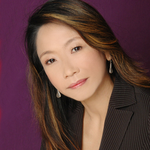
Dr. Mona Chung
Executive President at BlueMount Beijing at BlueMount Capital
Dr. Mona Chung is a bi-cultural business expert in doing business with China in particular negotiations. She addresses the major issue - overcoming the cultural gap between Westerners and Chinese in commerce and education.
Dr. Chung specialises in strategic planning, management and marketing practice for international organisations with the understanding of the culture of Chinese market first. Her major contribution from her PhD to knowledge is the Chung Model which has been tested, applied and approved in practice to improve the outcome of businesses. As a bi-cultural consultant she short-circuits processes and produce results that increase efficiency by between 70% and 50%. Dr Chung is in a unique position not only she has the theoretical tools but also the practical experiences.
Dr. Chung is on the executive board of the Victoria branch of the Australia China Business Council. Being highly experienced in a large number of industries, frequent visitor to China, lecturer at Victorian tertiary institutions, visiting professor of NCUT in Beijing, board member on a number of private organisations, regional director for China and Asia and consultant. Dr Chung is a frequent guest speaker at many public forums and author of a list of over 90 publications in cross-cultural business studies. Her first book was ‘Shanghaied: Why Foster’s Could Not Survive China’. Her second book was 'Doing Business Successfully in China'. Her third book was ‘Doing business with China: getting ready for the Asia century’. Her latest book is ‘Dancing with the Dragon: Doing Business with China’.

Edan
Defence Intelligence Organisation (DIO)
The Defence Intelligence Organisation (DIO) is is Defence's all-source intelligence assessment agency. DIO's role is to provide well-judged, clear and timely insights into defence and security-related matters that may affect Australia's national interests. DIO's assessments must enable ministers, policy advisers, capability managers and military commanders to make informed decisions. DIO works primarily at the strategic level; it must also work to support the operational and tactical domains. DIO is part of the broader Defence Intelligence Group (DIG) and collaborates closely with the broader Defence intelligence community, and with Australia's National Intelligence Community (NIC) and international partners in support of Government and Defence priorities.
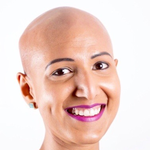
Rachel Ferdinands
Country Manager at World Vision Australia
Rachel is an international development specialist with over 10 years of experience, serving the world’s most vulnerable in various roles within International Non-Government Organisations in Australia and Sri Lanka. Rachel holds a Bachelor of International Development from La Trobe University and a B.A (Hons) from Monash University, graduating with a first-class Honours in Human Geography.
In her current role as Country Manager for Burundi and Zimbabwe at World Vision Australia (WVA), she manages a multimillion-dollar portfolio of development and humanitarian projects funded by a range of multilateral and government donors. Her project portfolio ranges from food security, Gender based violence, markets and value chains, climate resilience, improved livelihoods and inclusive growth, to women’s economic empowerment. She also leads WVA’s efforts to establish greater operational partnerships with the EU and ECHO (EU humanitarian aid operations).
She is passionate about climate change, gender, leadership and mentoring. In her free time, she loves to travel and experience new food.
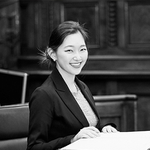
Dr. Daye Gang
Barrister at Victorian Bar
Dr Daye (pronounced Da-yeh) Gang is a barrister practising in public, criminal, and international law. Her international practice spans human rights treaties, business and human rights laws, sanctions compliance, and international criminal law. Notable recent work include the divestment of the Golden City development in Myanmar by a Singaporean company suspended from trading on the Singapore Stock Exchange because of sanctioned activities, and investigation of crimes against humanity in North Korea as part of the government’s supply chain practices. Daye holds a PhD from Monash University on restorative justice for sexual and family violence.
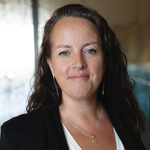
Dr. Eleanor Gordon
Peacebuilding Consultant and Senior Lecturer at Monash University
Dr Eleanor Gordon has spent over 20 years working in the field of conflict, security and justice, including many years working in management and advisory roles with the UN and other international organisations in conflict-affected environments. Positions held include War Crimes Advisor to the High Representative of Bosnia and Herzegovina (BiH), Head of the BiH Human Rights Coordination Centre, Head of UNHCR Zvornik Satellite Office covering Srebrenica, Political Advisor to the Kosovo Protection Corps (KPC) Coordinator, Gender Mainstreaming Focal Point in the UN Interim Administration Mission in Kosovo (UNMIK), and consultant on conflict-related security and justice issues for various organisations, including UNDP, Saferworld and the Geneva Centre for Security Sector Governance (DCAF).
She is currently a Senior Lecturer in Politics and International Relations at Monash University, where her research and teaching focus on inclusive ways to build security and justice after armed conflict.
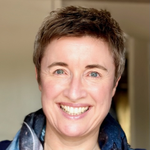
Kathryn Harries
Humanitarian Team Impact and WASH Specialist; Associate Trainer RedR Australia
Kathryn Harries has 20 years of experience in international development and humanitarian action, and has worked in countries such as Somalia, India, Timor-Leste, Sri Lanka, and the Pacific Islands. She is an expert in field teams operating in complex environments and has developed an innovative guide (as part of a PhD) to empower technical field teams in humanitarian organisations to improve their impact. Experts in the sector consider her guide will foster more responsive, sustainable, quality, locally led responses, with enhanced accountability to crisis-affected populations.
Kathryn is a water, sanitation and hygiene (WASH) specialist and experienced cluster coordinator. As the WASH Cluster Coordinator in Somalia from 2010 to 2012, she successfully coordinated the strategy, planning, and implementation of over 170 organizations responding to famine and insecurity. Her work was recognised as global best practice in knowledge management and information sharing. She worked in the management team of the DFAT-funded Civil Society WASH Fund, and later, as a consultant, with local actors to develop the Emergency WASH Handbook for Pacific Island countries.
Kathryn is also a trainer and facilitator. She is an Associate Trainer for RedR Australia and regularly trains on their Essentials of Humanitarian Practice and WASH courses. She also facilitated the inaugural Fiji National WASH Summit. This five-day workshop brought together over sixty participants, from eight government ministries and departments, to produce a Joint Implementation Plan to meet the draft National Water and Sanitation Policy.
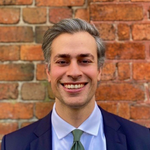
Mason Interlandi
Business Liaison Officer at DFAT Victoria State Office
Mason Interlandi is a career official with the Department of Foreign Affairs and Trade. He joined as a graduate in 2018, and currently works as a Business Liaison Officer at DFAT’s Victoria Office. Before this, he was posted to Australia’s Permanent Mission to the World Trade Organization and the United Nations in Geneva. He also has extensive experience as a Free Trade Agreement negotiator.
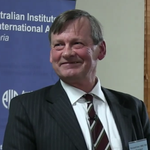
Richard Iron CMG OBE
President of AIIA Victoria
Richard Iron was educated at the University of Cambridge in the UK. He served for 37 years in the British Army, largely spent on operations in Northern Ireland, the Sultanate of Oman, the Falkland Islands, the Balkans and Iraq. In addition, he was an expert military witness in the Sierra Leone War Crimes trials, where he worked with ex-members of various guerrilla groups.
He was Defence Fellow at the University of Oxford and worked for the UK’s Chief of Defence Staff on developing the UK’s capacity to think and work strategically.
After leaving the Army in late 2011, he was a visiting fellow at the Changing Character of War programme at the University of Oxford and was lead editor of "British Generals in Blair's Wars."

Jenny
Australian Geospatial-Intelligence Organisation (AGO)
The Australian Geospatial-Intelligence Organisation (AGO) provides Geospatial Intelligence (GEOINT) in support of Australia’s Defence Force, broader Australian Government and National Intelligence Community priorities. GEOINT is derived from the exploitation and analysis of imagery and geospatial data that informs our understanding of features and events, with reference to space and time. Understanding what happens where and when, underpins all strategic and operational decisions. AGO informs decision making at the highest levels of government and contribute towards the protection of Australia’s national security. AGO provides unique insights into international developments and critical support to ADF operations and activities.
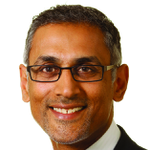
Terence Jeyaretnam
Partner and APAC Leader at EY in the Climate Change and Sustainability Practice
Terence is a Partner and APAC Leader of EY’s Climate Change and Sustainability team based in Melbourne. Terence is an environmental and sustainability advisory and assurance specialist with over thirty years’ experience in advising governments and corporations on sustainability issues. Until its acquisition by EY in 2014, Terence was Founder/Executive Director of Net Balance, Australia's largest standalone sustainability and climate change practice at the time, one of Australia’s first B Corporations, twice-rated by Business Review Weekly as one of the 100 fastest-growing companies in Australia. Terence a member of the Auditing and Assurance Standards Board of Australia, a member of the Board of the Australian Conservation Foundation, and a non-executive director of Amnesty International Australia, Fairtrade Australia/New Zealand, Food Frontier and Global Citizen Australia. He is also an Adjunct Professor at the University of Southern Queensland. He is a Technical Working Group member of ISSB (International Sustainability Standards Board).
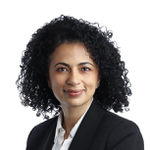
Lydia Khalil
Project Director of Lowy Institute and Senior Research Fellow, Alfred Deakin Institute
Lydia Khalil is Project Director at the Lowy Institute. She is also a Senior Research Fellow at the Alfred Deakin Institute and serves as Co-Convenor of the Addressing Violent Extremism and Radicalisation to Terrorism (AVERT) Network.
Lydia has a broad range of policy, research and private sector experience and has a professional background in international relations- focusing on counterterrorism, countering violent extremism and strategic intelligence analysis. Lydia has held previous appointments as an international affairs fellow at the Council on Foreign Relations in New York, the Australian Strategic Policy Institute and Macquarie University.
Lydia also has an extensive background in national security, most recently as a senior policy advisor to the Boston Police Department, working on countering violent extremism, intelligence and counterterrorism, and community policing strategies. She has also worked as a senior counterterrorism and intelligence analyst for the New York Police Department. In addition, Lydia served as a political advisor for the US Department of Defense in Iraq.
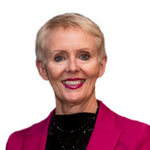
Martine Letts FAIIA HonLLD
CEO of Asialink
Martine is an experienced executive within the government, non-profit and international policy sectors with expertise in public policy development, formulation and promotion in Australia and internationally.
Martine was previously the CEO of the Committee for Melbourne, beginning in March 2016. Before her time with the Committee, Martine was CEO of the Australia China Business Council (ACBC), where she led the development of the organisation’s national strategy.
Prior to her role at the ACBC, Martine was Deputy Director of the Lowy Institute for International Policy, where she led the organisation’s business and organisational development. As Secretary-General of the Australian Red Cross (ARC) from 2001-2004, based at its national headquarters in Melbourne, she worked on a national transformation strategy to help the ARC improve its delivery of community and relief services across Australia and globally.
Martine was a senior Australian diplomat for 17 years and an adviser to Foreign Minister Evans from 1992 to 1994.
She served on the Australian National University Council from 2004-2014. She is a member of the Australian Volunteers International (AVI) board, chairs AVI’s Govern Martine speaks French, German and Spanish and is a Fellow of the Australian Institute of International Affairs (FAIIA) and a member of Chief Executive Women (CEW). In July 2022, Martine was awarded an Honorary Doctor of Laws (HonLLD) by The Australian National University, in recognition of her exceptional contributions to public service and law nationally and internationally.
Martine commenced her position as Asialink Group CEO in March 2022.
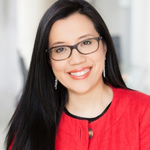
Dr. Selina Namchee Lo
Executive Director of the Australian Global Health Alliance
Dr. Lo has nearly three decades experience in global and international health with qualifications in medicine (University of Melbourne), tropical medicine (London School of Hygiene and Tropical Medicine) and a Masters in Public and International Law (University of Melbourne).
She is currently also Consulting Editor (Global and Planetary Health Commissions) for The Lancet medical journal where she was previous Senior Editor based in London and Beijing. She has been handling editor of a number of global health peer reviewed commissions including the Rockefeller Lancet Planetary Health report, the first Lancet series on Transgender Health and Global Health 2035: Investing in Health.
Selina has worked in Afghanistan, Myanmar, China, Thailand, and Bangladesh specifically with refugee, stateless, ethnic minority, and IDU and sex worker communities. She was a Medical Director for Essential Medicines for Médecins sans Frontières based in Geneva. She has worked for Save the Children UK and was Clinical Advisor for the seminal Clinton Foundation national HIV AIDS treatment partnership based in China CDC, and inaugural CEO for Doctors for the Environment Australia (DEA). As a consultant Selina has worked with WHO HQ on Common Goods for Health, Victorian Department of Health COVID19 response, and was a visiting fellow to the UN International Institute of Global Health Malaysia on Gender and Health.
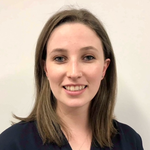
Sam Meyerson
Business Liaison Officer at DFAT Victoria State Office
Sam Meyerson is a career official with the Department of Foreign Affairs and Trade. She joined
DFAT as a graduate in 2018, and has worked as a Business Liaison Officer in DFAT’s Victoria
State Office since 2021. Within DFAT, she has worked on US politics, cyber security,
development finance, consular operations and countering disinformation. Outside of DFAT, her
professional experience includes marketing and strategy consulting.
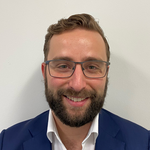
Peter Onorato
Senior Policy Officer at DFAT, Climate and Environmental Diplomacy Branch
Peter is a Senior Policy Officer in the Climate and Environmental Diplomacy Branch in the Department of Foreign Affairs and Trade. He has over a decade of experience working on climate and environment policy for the Commonwealth across multiple agencies. He joined DFAT in late 2017 and has had a wide range of experiences including designing blended finance mechanisms, representing Australia at multiple UNFCCC COPs, and supporting the Australian Government’s climate diplomacy agenda in Southeast Asia. He holds a Master of International Relations from the University of Melbourne, and a Graduate Certificate in Law from the ANU.
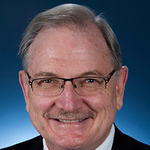
John Richardson
Vice President of AIIA Victoria; Former Australian Ambassador to Brazil
John Richardson is Vice President of AIIA Victoria and served as Ambassador to Brazil from 2016 to 2018. Previously Mr Richardson was DFAT State Director Victoria, having served overseas as Ambassador to Argentina, Paraguay and Uruguay, and as Deputy Head of Mission in Australia's Embassies in Germany and Thailand. In Canberra, Mr Richardson served as Assistant Secretary of the Canada and Latin America Branch; the APEC Taskforce; the Diplomatic Security Branch; the North-East Asia Branch; and the Trade Strategy Branch. His early career focused on Australia-Japan relations.
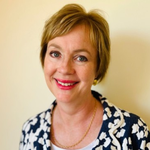
Kirsten Sayers CompIEA
Director of Caritas Australia
With deep experience in the humanitarian, development and peacebuilding nexus, Kirsten Sayers was elected to the Sphere global board which sets the standards for accountability and quality in humanitarian response. Kirsten was appointed to the United Nations advisory board for civil-military humanitarian coordination standards, and also played a foundation role in the United Nations Resident/Humanitarian Coordinator cadre.
As CEO of RedR Australia (2013-2023), President of RedR USA, and CEO lead for the RedR International Federation she mentored her international peers and led cohesion and governance across the federation. As the CEO of the only United Nations standby partner in the Asia Pacific, and a foundation member of the United Nations standby partnership, Kirsten brokered partnerships and led flagship programs with multilateral and regional agencies, sovereign governments, the international private sector and community organisations.
Former international lawyer and trade and investment diplomat, Kirsten has held senior diplomatic appointments in Paris, Bangkok, Taipei, Singapore and ASEAN. As Australia's first Investment Commissioner to ASEAN she was appointed Australia's Chief Negotiator and Delegation Lead to APEC Women Leaders' Network. She was Vice President of AustCham Singapore, a thought leader for AustCham ASEAN, and has held board roles on the Australia China Business Council, Olivet Aged Care, the Australia Technology Showcase and the Meal a Day Foundation. Experienced in environmental and social governance Kirsten works with partners to together build a more inclusive and sustainable future for people and planet.
An Asian literacy Ambassador, Kirsten is specialised in Indonesian, Islamic, and Chinese law, and speaks Mandarin, French, Swedish, Norwegian and Vietnamese to various degrees.
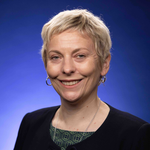
Meaghan Shaw
Deputy Director of DFAT Victoria State Office
Meaghan Shaw is an experienced DFAT officer with expert knowledge of China and high-level skills in media and communications. She is currently the Victoria State Office Deputy Director, providing advice to Canberra on Victorian interests including from government, business, the consular corps and other stakeholders. Prior to this, she was Director of the Media and Communications Section in DFAT’s East Asia Outreach Branch, engaging across the whole of government to promote a positive image of Australia into the region. Meaghan spent from four years at Australia’s Embassy in Beijing where, as First Secretary Public Affairs, she led on all aspects of cultural diplomacy, media and social media engagement to promote Australia’s interests in China. Before joining the public service, Meaghan was a journalist at The Age for 10 years covering state and federal politics; a media adviser to the Victorian Deputy Premier; and the Media Manager for the Australian and New Zealand College of Anaesthetists.
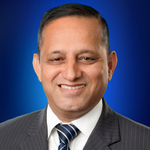
Vasan Srinivasan
CEO of Mental Health Foundation Australia
Vasan Srinivasan is actively involved in ethnic community groups but also the main stream Community in Australia.
Vasan has held numerous high level State and Federal ministerial and advisory briefing and liaison roles relating to Indian student violence incidents and matters of importance to multicultural policy with Victorian Multicultural Commission, Victoria Police, Victorian Government and Federal Government.
Vasan is the first person of Indian origin to be appointed as member of the Australian Multicultural Council.
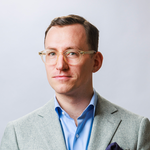
Dr. William Stoltz
Senior Manager at CyberCX
Dr. William Stoltz is a Senior Manager at Cyber CX, Australia’s leading cyber security firm and a Lecturer at the National Security College at the ANU. He has previously worked across Australia’s defence, intelligence, and law enforcement communities developing strategic policy, legislative reform, and strategic intelligence assessments. He writes extensively on national security and intelligence policy reform as well as Australian foreign policy.
Stoltz is a Visiting Fellow at the Robert Menzies Institute at the University of Melbourne and an Associate Member of the Centre for the Study of Subversion, Unconventional Interventions and Terrorism (SUIT) at the University of Nottingham.
He holds a PhD and Advanced Masters of National Security Policy from the Australian National University as well as a Bachelor of Arts from the University of Melbourne.
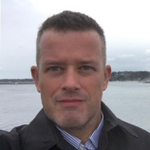
Peter Walton
CEO of CARE Australia
Peter Walton is the Chief Executive Office of CARE Australia, joining in January 2020. He has twenty eight years of international experience seeking better outcomes in both international development and humanitarian activities. During his career he has undertaken assignments in over 50 countries, including being based for seven years in Vietnam where he was the Regional Representative for operations across the Mekong region for ChildFund Australia. During this time he was awarded the Vietnam Government’s Medal for Peace and Friendship, the highest award offered to foreigners for services towards social development and poverty alleviation.
Peter has held a number of senior roles in the humanitarian / development sector including international director with Save the Children Australia and Chief Executive of an enterprise that uses technology in support of social impact and social justice. Immediately prior to joining CARE Australia, Peter was the International Director with Australian Red Cross and led a transformation of its approach to better equip the organisation to maximise its impact and evolve in a rapidly changing environment.
Peter is a lead advocate for reform in the sector and ensuring that aid is genuinely locally-led. He has a strong interest in appropriate innovation and new forms of partnership and humanitarian financing. He holds a Bachelor of Arts (International Development and Politics), a Master of Science (MSc) in Development Economics and an MBA. He has also completed the Oxford Strategic Leadership Program at the Said Business School at the University of Oxford.